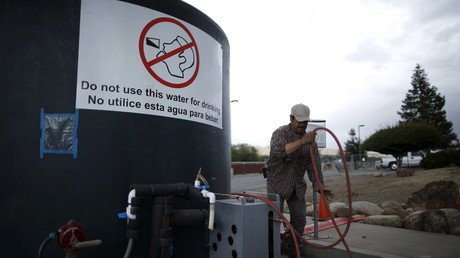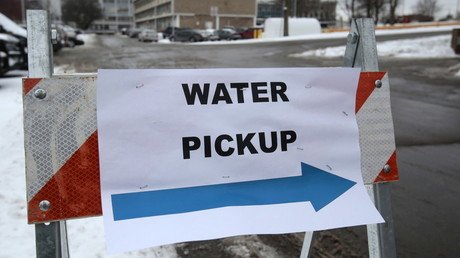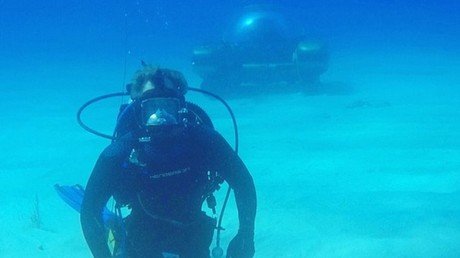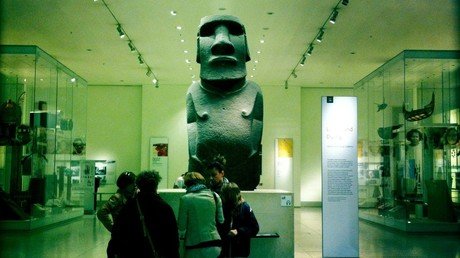'They will f*ck up': Company involved in Flint water crisis bids to serve largest city in Africa
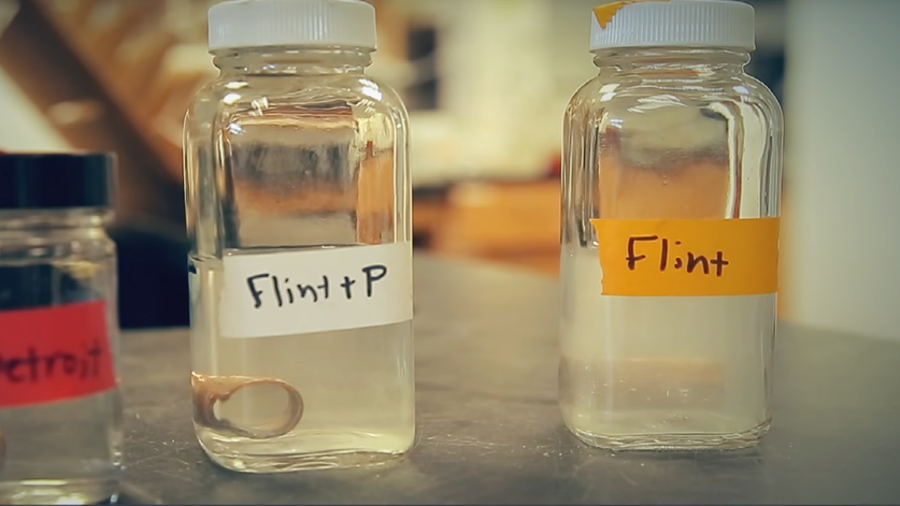
Activists are concerned that Veolia, the company linked with the Flint, Michigan water crisis, is on the shortlist to manage two-thirds of water system in Lagos, Nigeria, where many children die from water-borne diseases.
"I feel Veolia is a snake, and they slithered over to Lagos to try to increase their profit margins," Nayyirah Shariff, director at Flint Rising activist group, told BuzzFeed News. "They have a history of poisoning black communities in the US, and they should not be poisoning the largest African city on the continent."
The campaigner said she was "shocked and extremely angry" when she found out that the French-owned water management company is among the three bidders for the Adiyan II project in the Nigerian capital, Lagos, which is the seventh largest city in the world.
The megacity of 21 million people suffers from lack of access to drinkable piped water. Lagos also has one of the highest child death rates from water-borne diseases.
In hopes of improving the situation, local officials are considering partnerships with private companies from abroad. The idea itself is controversial. Nigerian environmental and human rights NGOs are protesting against the privatization of the water sector, citing distrust of large multinational corporations and concern over government corruption. They are drawing attention to high-profile controversies surrounding Veolia and the two other top bidders, Spanish company Abengoa and Dubai-based Metito, overseas. The Emirati firm is linked to the Dakota Access Pipeline, which sparked protests from Native Americans, while Abengoa's management caused protests and riots in Bolivia.
In July, 23 US lawmakers, many of whom are members of the Congressional Black Caucus, wrote a letter in solidarity with the Nigerian activists, decrying water privatization.
The proposed privatization "introduces significant governance challenges that can erode democratic control and oversight, including the government's ability to regulate in the public interest," the lawmakers warned. A similar letter was penned in Congress in 2015.
Last year, state-owned Lagos Water Corporation (LWC), tasked with overseeing the bidding, flatly dismissed reports that the three finalists "failed" in other countries, calling accusations leveled against them "a blatant falsehood."
Speaking to BuzzFeed News, a manager at LWC said that the "checks and balances" in the procurement process will "ensure that the public is not paying for the inefficiency of the investor."
The campaigners, both in Flint and in Nigeria, insist that the state government's assurances are not enough. They argue that Veolia's North American branch is currently being sued for its alleged role in water contamination in Flint, Michigan. In the lawsuit, filed by the state of Michigan, the company is accused of professional negligence, fraud, and public nuisance for allegedly falsifying the studies on the town's water system and making fraudulent statements. Veolia denies the allegations of wrongdoing.
The crisis, which started in 2014, caused massive lead poisoning, resulting in long-lasting health problems for residents. Among the reported effects from drinking the water in Flint was a spike in fetal deaths and a dramatic deterioration in local children's reading abilities.
Activists fear Veolia's involvement in Nigeria can end with a similar crisis, but on a larger scale and with more victims. "I know with the population of Lagos, it's just going to have a larger inverse impact on when Veolia f**ks up – because it's going to happen," Flint-based campaigner Shariff said, cited by Buzzfeed News.
Tunji Buhari, a water project officer with the local NGO in Lagos, stressed that "Veolia are the company behind Flint" and that should be alarming. "Why do you want to embark on this dangerous experiment, which is bound to fail?"
Like this story? Share it with a friend!
